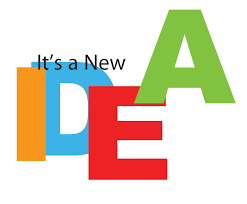Your special needs child is doing poorly or worse, failing in school. You’ve spent countless painstaking hours talking to teachers and administrators about the goals and objectives set up in his/her IEP (Individualized Education Plan) in the hopes of seeing progress. Despite multiple calls and meetings with teachers and administrators, you’re getting nowhere in your quest to get your child the help he/she deserves and is entitled to under the Free and Appropriate Education Law. It's imperative to secure your child's education rights under IDEA. Read on:
Perhaps PPT (Planning and Placement Team) meetings have not been held or the IEP was not
How to secure your child's education rights under IDEA:
Let's first dive into what IDEA is:
- Under the IDEA, every child with a disability is entitled to a Free Appropriate Public Education for which all public schools and school boards are responsible.
- IDEA requires that schools conduct appropriate evaluations of students who are suspected of having a disability. These must be conducted by trained professionals and must contain specific recommendations that can be implemented in your child’s IEP.
- Ensures the creation of an IEP, a written document developed by an IEP team, which utilizes information from any assessments or evaluations to outline specific education requirements for your child. This typically includes a status of your child’s current education challenges, goals and objectives to overcome challenges, aids or accommodations that will be needed and how progress will be reported.
- Guarantees your child is placed in as Least Restrictive Environment as possible, preferably in the general education classroom with specific accommodations as outlined in the IEP.
- Parents have a an equal seat at the table with school personnel and have a right to participate in any/all decisions, processes, and meetings regarding their child.
- Parents and students are able to enforce their rights under federal law via the procedural safeguards within IDEA. Should there be a disagreement, parents have the right to request mediation or due process hearings.
If your school is not fulfilling their obligation, they are breaking the law and you can file a complaint. While each school district has its own procedures, you must file this complaint within two years of the dispute. Failing to do so will result in a forfeiture your rights to file a lawsuit against the school.
You don’t have to go it alone. My firm specializes in IDEA lawsuits and can help you navigate the process and secure the education rights of your child. We will guide you along each step of the hearing process through the final decision. Our sole objective is to ensure that you and your child’s education rights are protected.
Contact me today. I have an extensive background of positive outcomes for disability rights cases, especially within schools.

